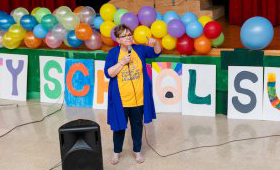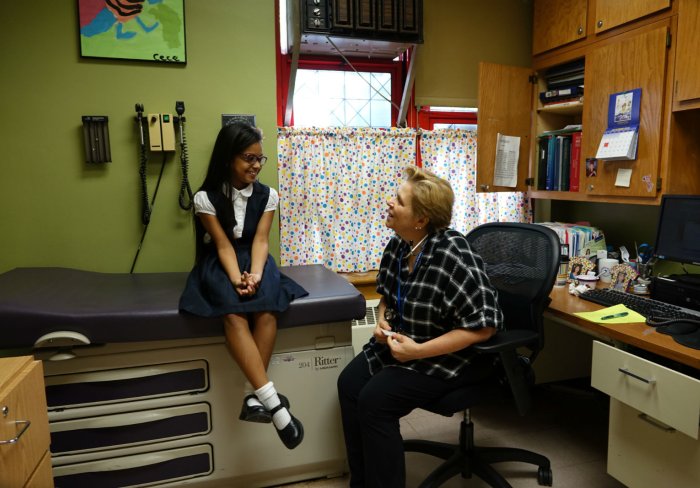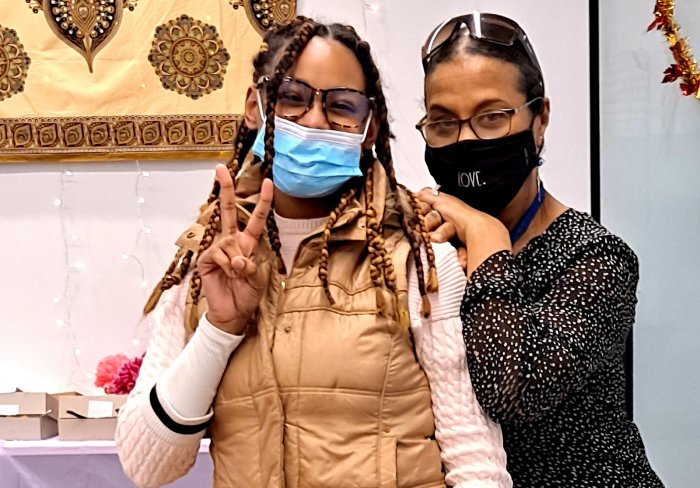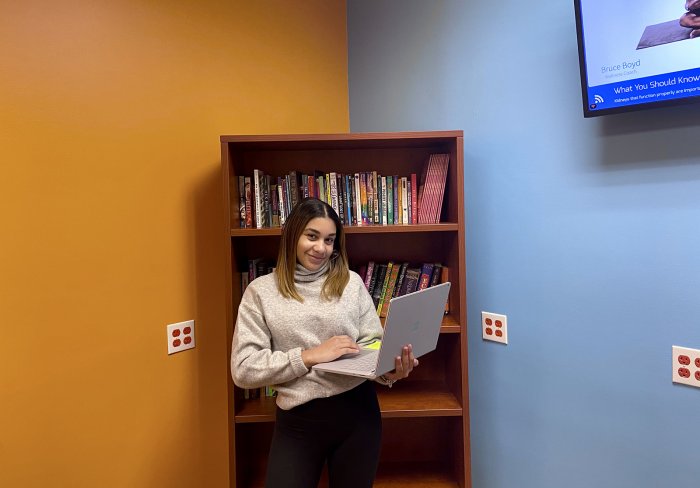When families enter our services through the child welfare system, our number one goal is to make sure they leave it thriving. One of the approaches we use is Multidimensional Family Therapy (MDFT), which provides families with counseling to troubleshoot their most pressing issues.
Skipping school, using drugs recreationally, or facing substance abuse are the most visible signs that bring youth to our attention. However, the emotional roots of these issues, both inside and out of the home, are often the reasons behind unhealthy behaviors. That’s where our in-house experts step in.
Kim Dorsey, a deputy director in our Child Welfare and Family Services Division, Stephen Douglas, the MDFT program director, and Zakiya Thomas, the only MDFT-certified trainer in New York State, manage a small, but powerful team of therapists at Children’s Aid. They arrive at apartment doors across the Bronx, Brooklyn, and Manhattan, ready to start conversations in our clients’ living rooms.
“Our therapists work really hard. They are out there in the homes early in the morning and late in the evening to support families,” said Kim.
For youth who have never had the opportunity to talk about what’s affecting them, and for parents who may be feeling as frustrated or overwhelmed as their children, that support is a listening ear.
“Parents are often struggling with issues that have nothing to do with them being a parent,” said Kim. “It’s also their time to talk.”
The one-on-ones with therapists turn into family discussions between children and their parents, which build strong lines of communication into the core of their relationship. It results in healthy outcomes for our youth: they remain sober, attend school every day, and most, importantly, they feel supported at home. Our consistent record of breakthroughs has garnered us recognition as one of the top ten MDFT programs worldwide by MDFT International. We not only take pride in these successes, but also in the ones that extend beyond our services.
“When families call a couple of months later to say a child is graduating or going to college—that’s really gratifying,” said Stephen.







